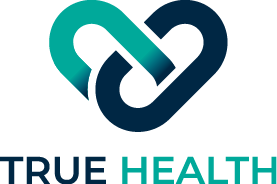How Massage Therapy Can Support People with Disabilities
Living with a disability often means facing challenges related to pain, muscle tension, circulation, and mobility. For many individuals with disabilities, massage therapy serves as an effective complementary treatment to traditional medical and physiotherapy approaches. Whether addressing musculoskeletal discomfort, improving circulation, or promoting relaxation, massage therapy offers a holistic approach to enhancing physical and mental well-being.
How Can Massage Benefit Individuals with Disabilities?
Massage therapy provides numerous benefits for people with disabilities, including:
- Reducing Muscle Stiffness and Spasms – Many disabilities, including cerebral palsy, multiple sclerosis (MS), and spinal cord injuries, lead to muscle tightness and involuntary spasms. Massage techniques help relax the muscles, reducing pain and increasing flexibility.
- Improving Circulation and Reducing Swelling – Poor circulation can cause cold extremities, swelling, and numbness. Massage increases blood flow, oxygenation, and lymphatic drainage, helping prevent swelling and fluid retention.
- Pain Management – Individuals with disabilities often experience chronic pain due to muscle imbalances, joint stress, or nerve-related conditions. Massage therapy can alleviate pain by releasing endorphins and reducing inflammation.
- Enhancing Mobility and Joint Function – Stiff joints and limited movement are common issues. Regular massage can improve joint flexibility and help maintain a greater range of motion.
- Supporting Mental Well-being – Living with a disability can contribute to stress, anxiety, and depression. Massage therapy lowers cortisol levels and boosts serotonin and dopamine, improving overall mood and relaxation.
Scientific Evidence Supporting Massage for Disabilities
A study published in the International Journal of Therapeutic Massage & Bodywork found that individuals with neurological disorders who received massage therapy experienced improved motor function, reduced pain, and better quality of life. Another study in the Journal of Rehabilitation Medicine showed that massage helped reduce muscle spasticity and improve circulation in people with mobility impairments.
Massage Therapy for Specific Disabilities
Different disabilities require tailored massage techniques to ensure safe and effective treatment:
- Spinal Cord Injuries – Massage can prevent muscle atrophy, enhance circulation, and reduce nerve pain.
- Cerebral Palsy – Gentle massage helps reduce muscle stiffness and spasms, improving overall comfort.
- Multiple Sclerosis (MS) – Massage relieves fatigue, muscle tension, and pain, improving relaxation.
- Amputees – Massage can help alleviate phantom limb pain and improve circulation in residual limbs.
Safe and Accessible Massage for People with Disabilities
For individuals with disabilities, accessibility and comfort are essential. Options include:
- Chair Massage – Ideal for individuals who may have difficulty lying on a massage table.
- Adaptive Massage Techniques – Therapists may use gentler pressure, assistive devices, or specialised positioning techniques to ensure comfort.
A Holistic Approach to Disability Management
Massage therapy should be viewed as a supportive treatment, working alongside physiotherapy, occupational therapy, and medical care. For individuals living with disabilities, regular massage can improve comfort, mobility, circulation, and mental well-being, making everyday life more manageable and enjoyable.
If you or a loved one is living with a disability, consider massage therapy as a gentle yet effective way to enhance physical and emotional well-being.


